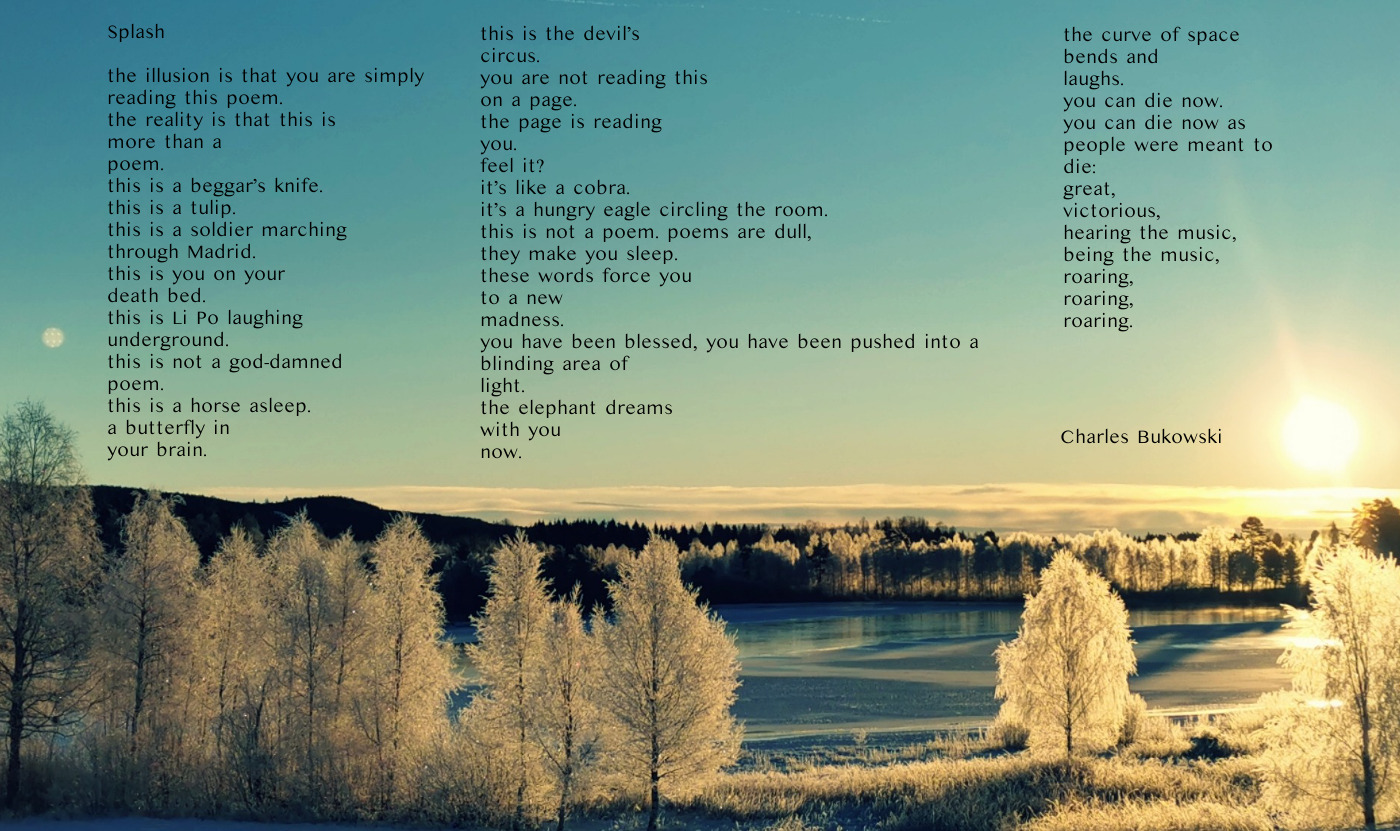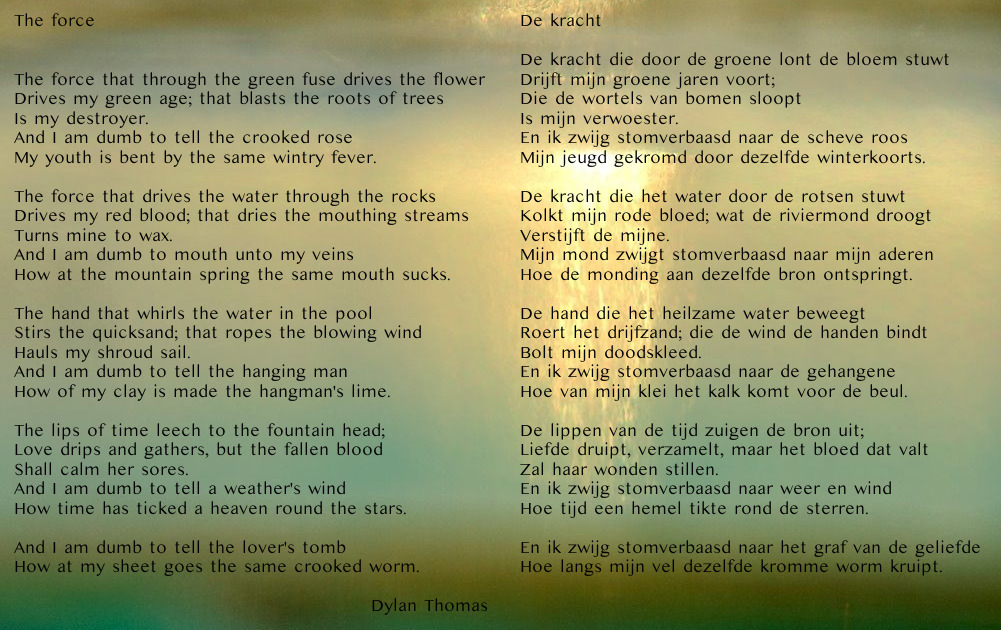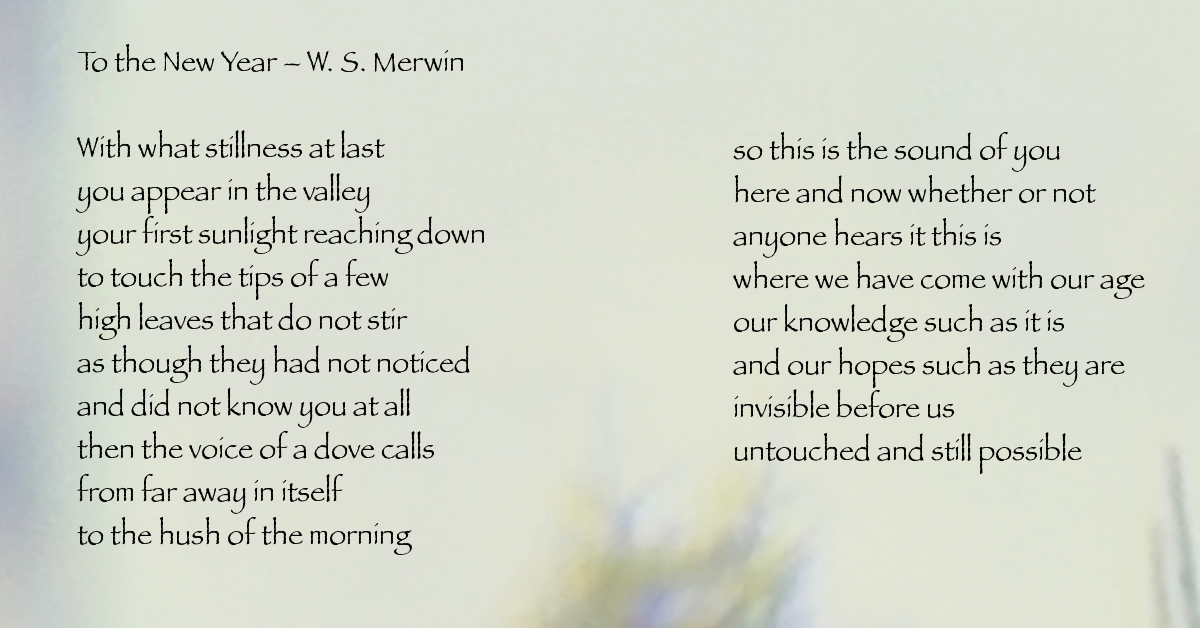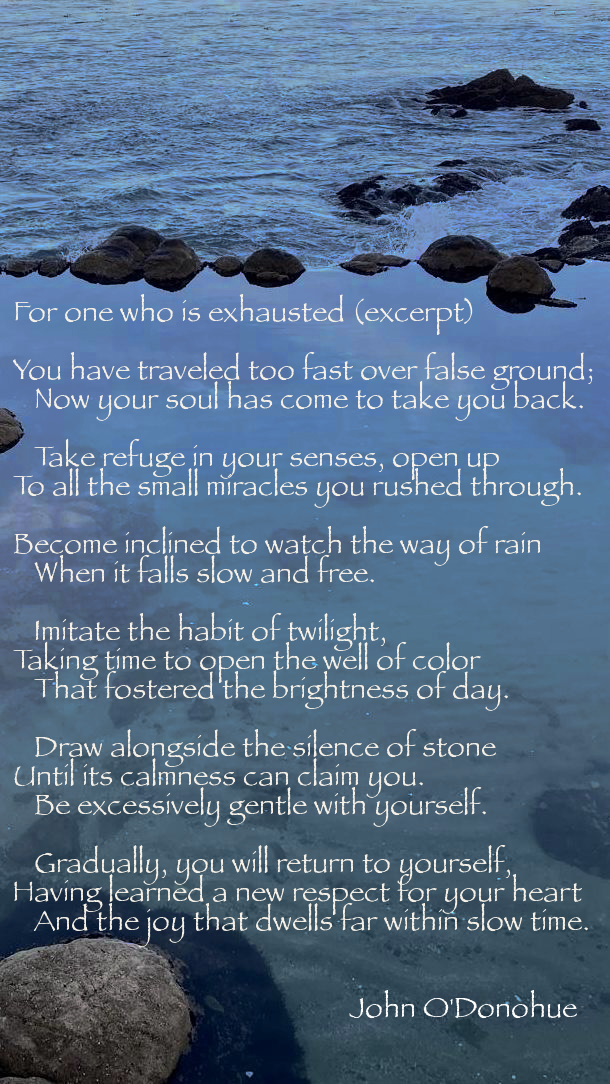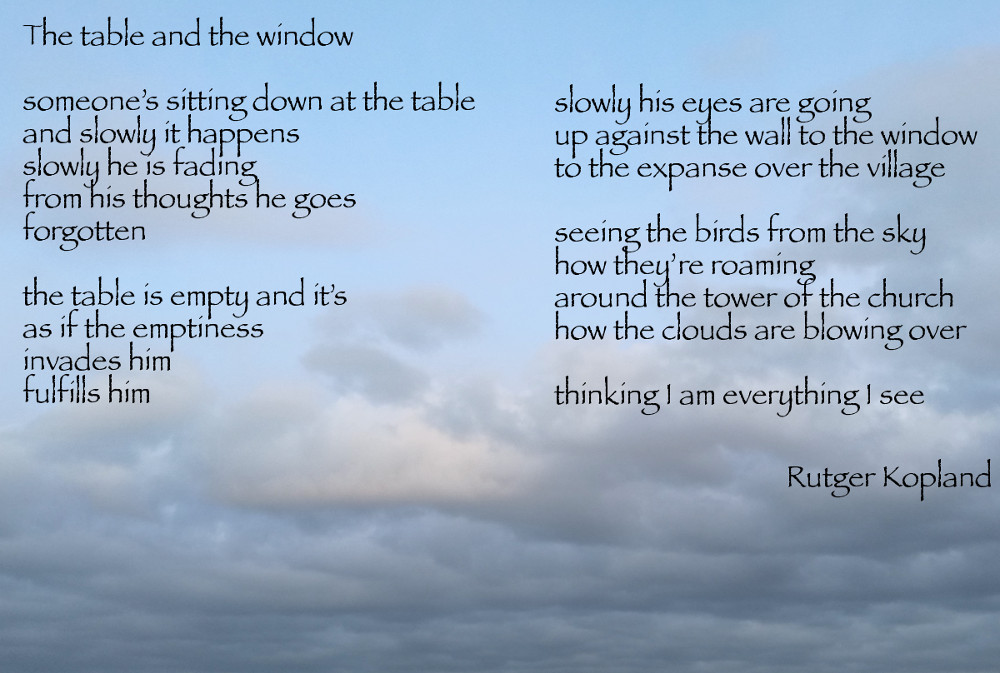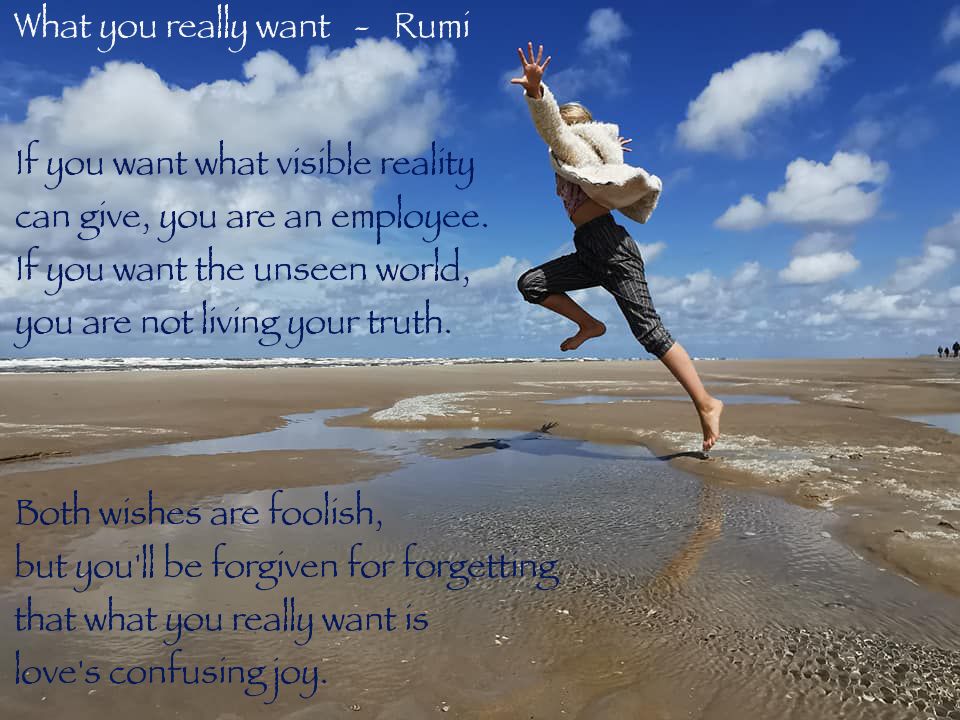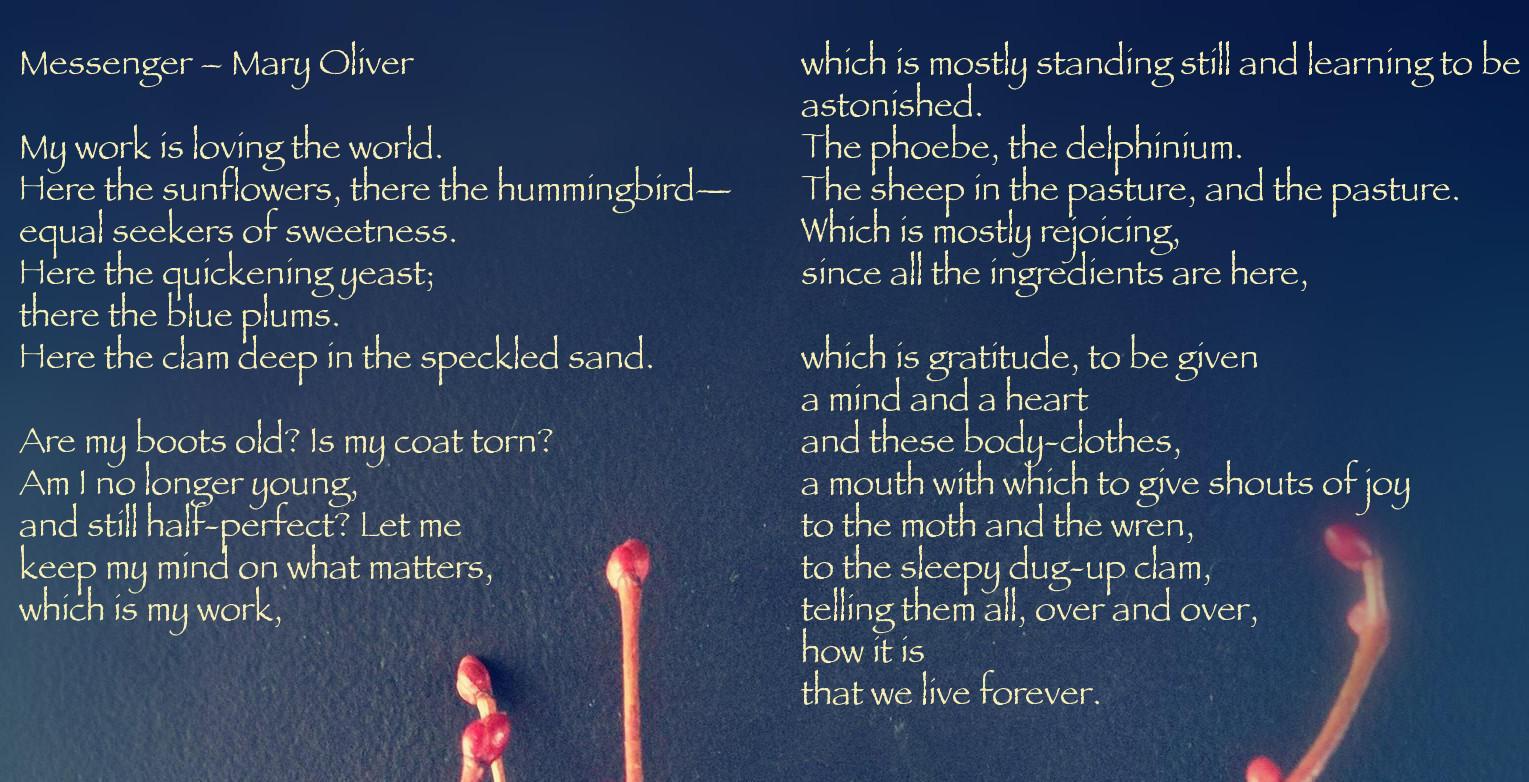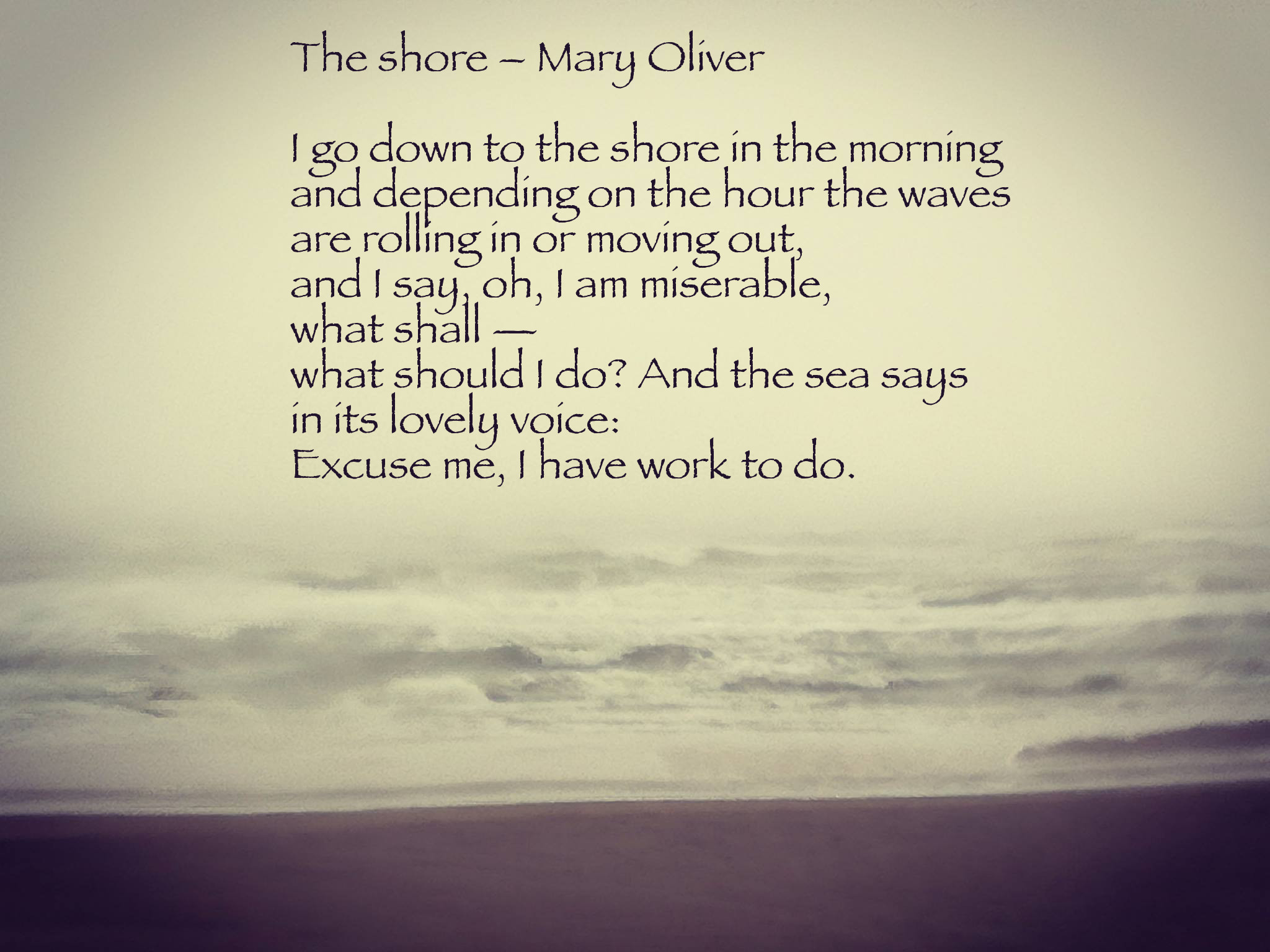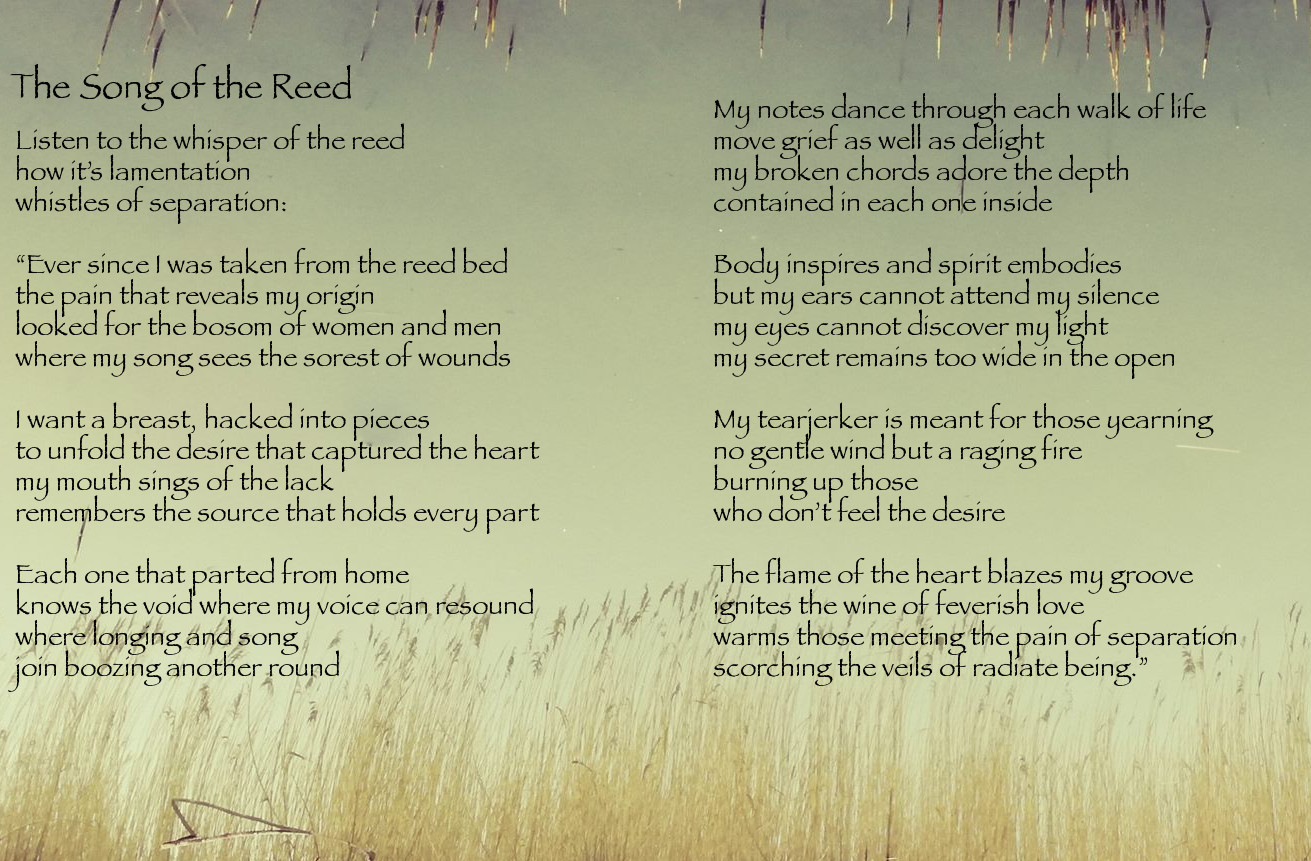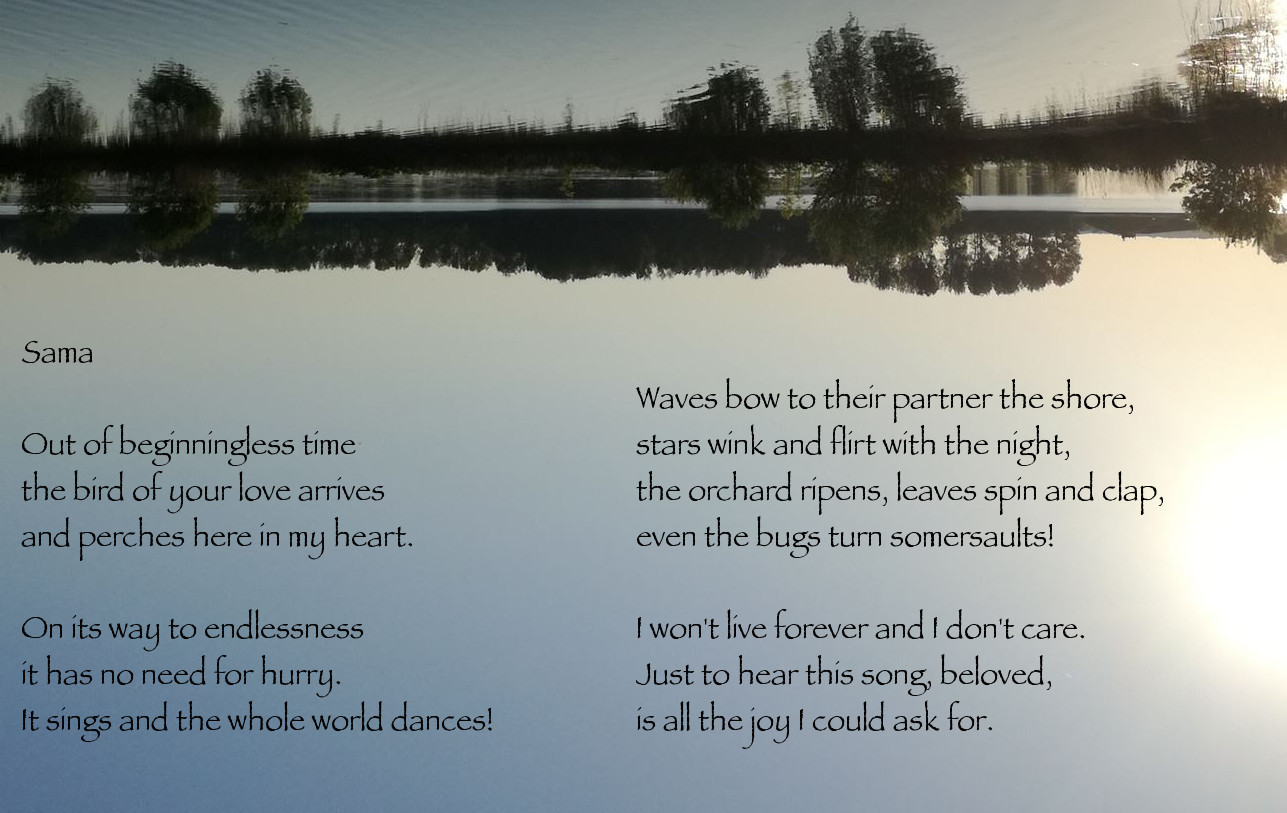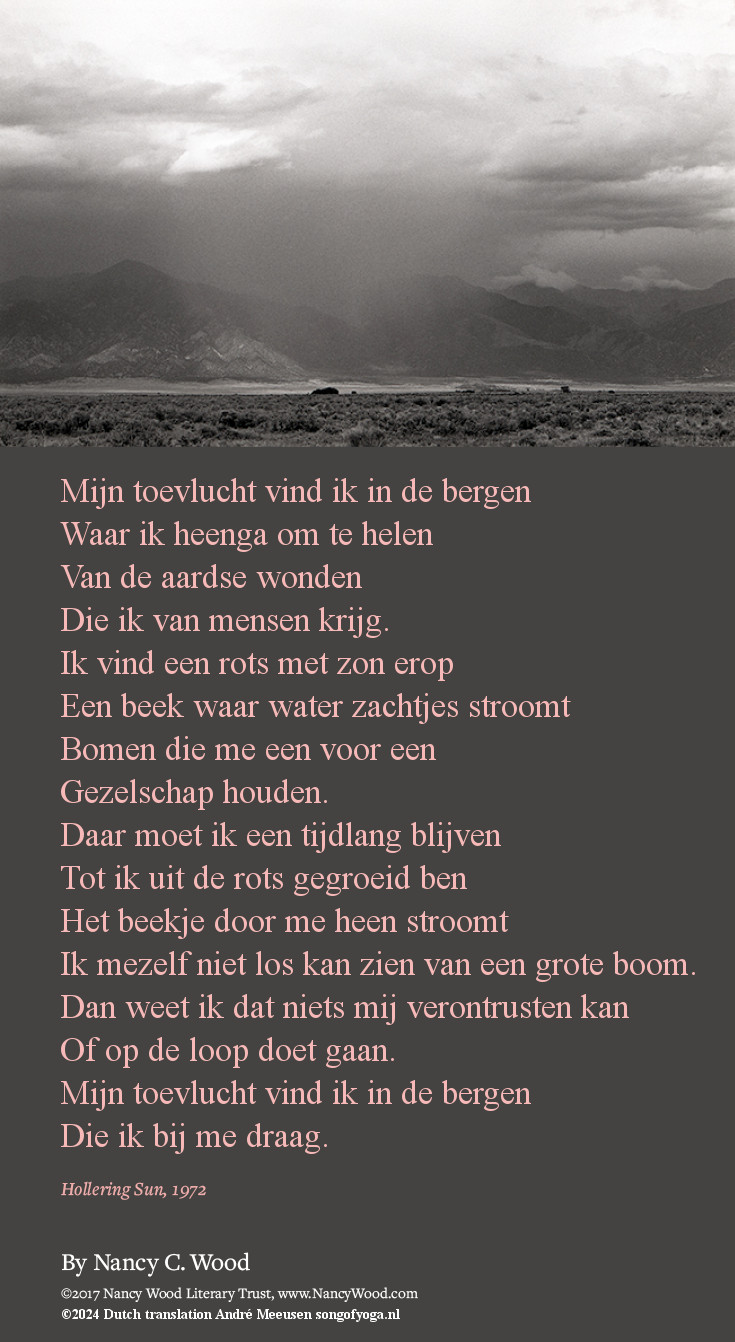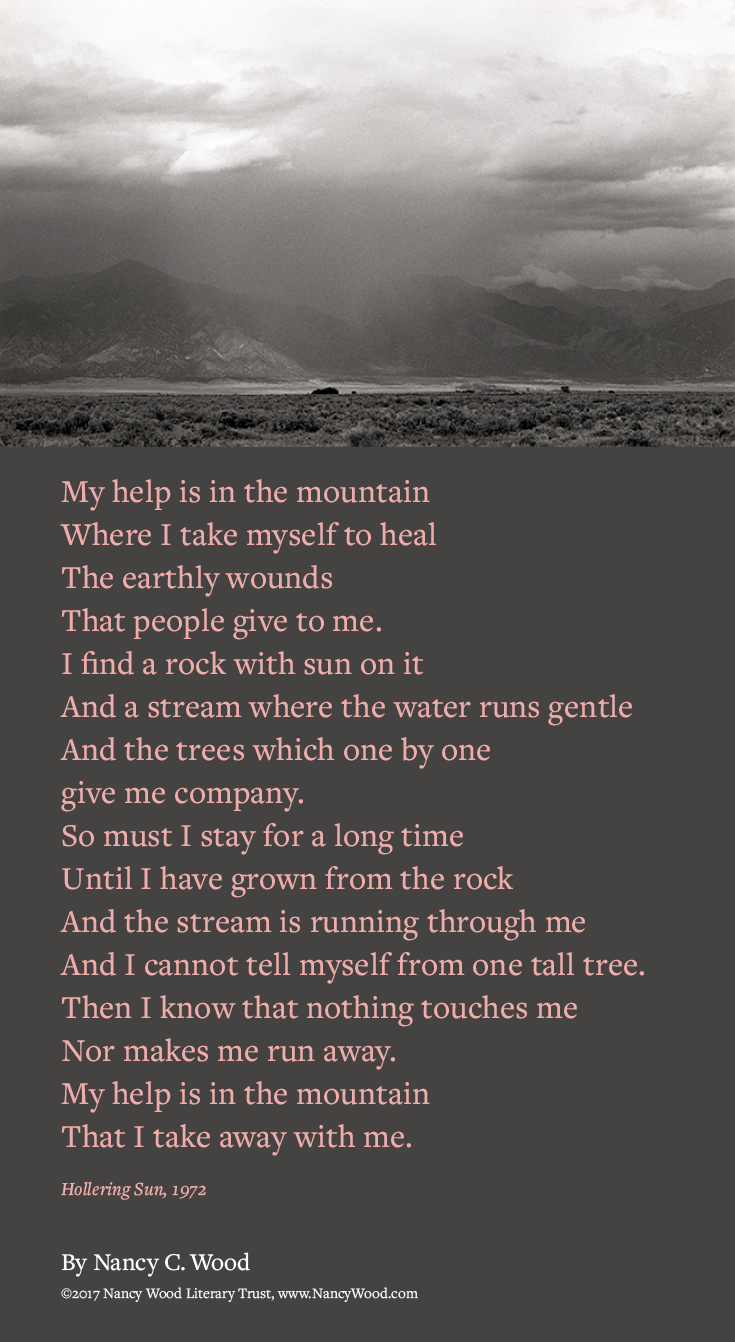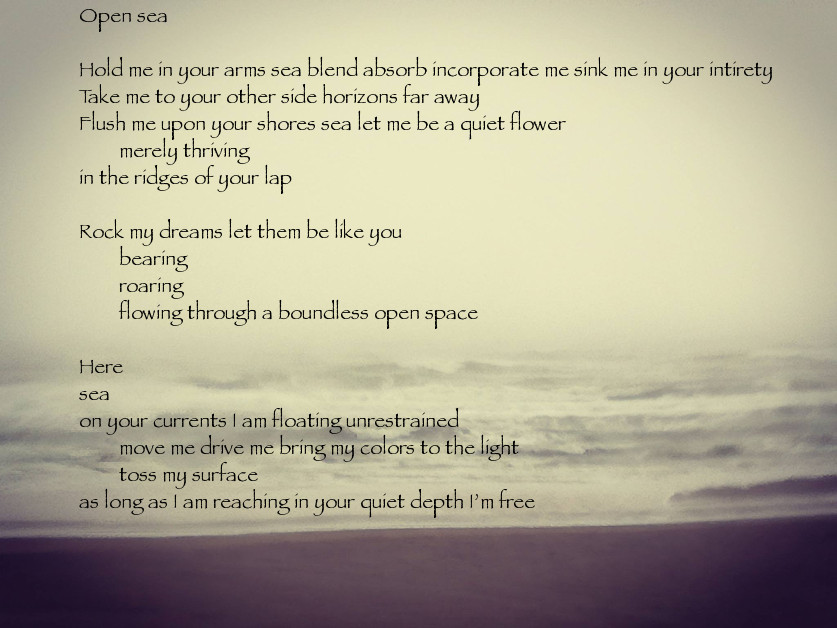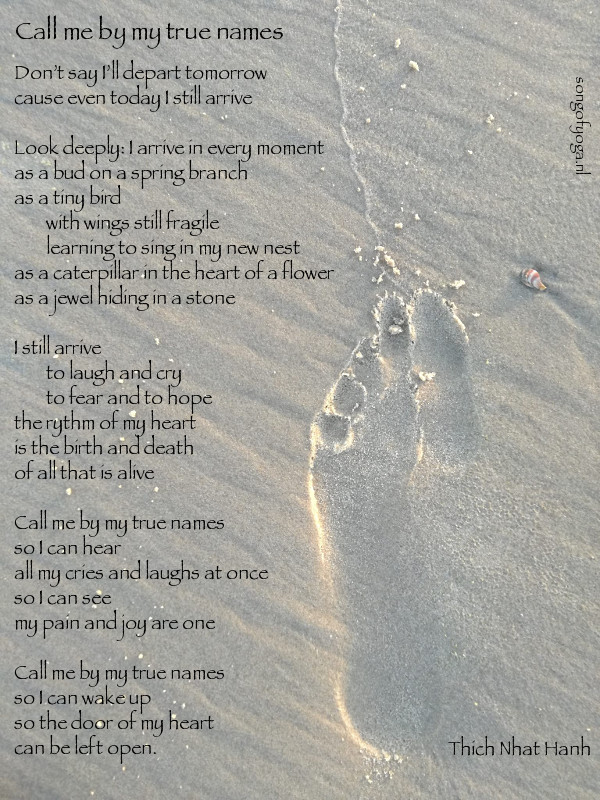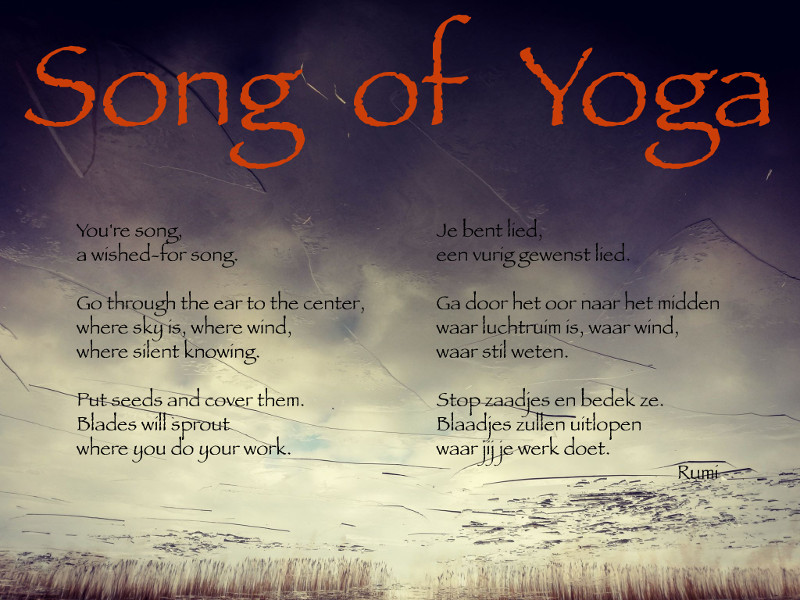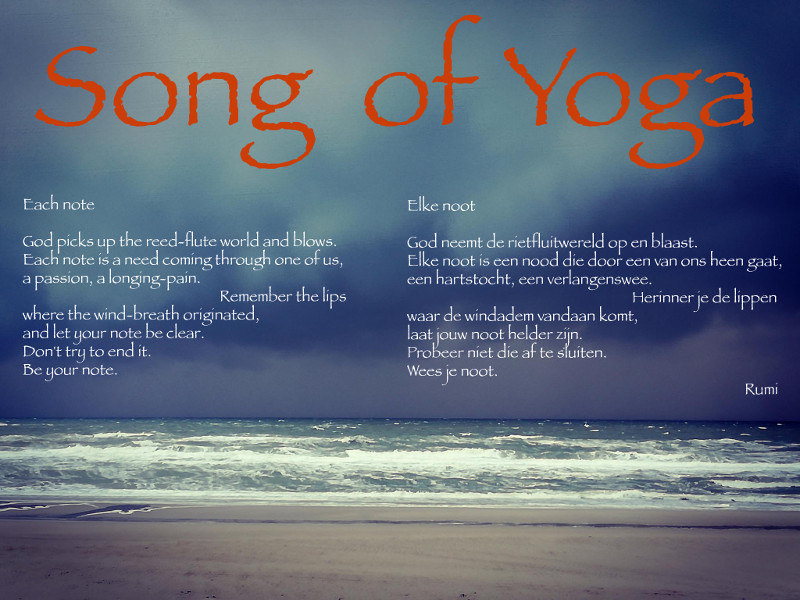23 November 2024
As I like using his poems for my yoga concerts, I delved a little more in the work of the legendary Bohemian poet Rainer Maria Rilke. Even pieces of letters are being presented as poems, as his lines sound so poetically. ‘Concede the things their development,’ he wrote in a letter to a young poet,
Be patient with what
is unsolved in the heart,
try to cherish the questions
as enclosed spaces,
as books written in a foreign language.
It comes down to living everything.
When you live the questions, you will
perhaps quietly, without noticing,
on a strange day
be living in the answers.
The official poems are more tight and formal (and more difficult to translate). In the above poem, it’s almost as if he describes the intention of the yoga concerts. It comes from his last booklet, 'Sonnets to Orpheus'. Orpheus is a musician, poet, and prophet in Greek mythology, especially known from the love story with Eurydice. Perhaps Rilke meant Orpheus as the 'silent friend' in the first line, addressing the reader. ‘Feel how your breathing makes more spacious,’ reads the following line, that I could use literally during the yoga class. I like using the breath as an entrance, bringing air and space very directly into our experience.
The postures in yin yoga take long, making it intense. It's where we arrive in ‘the gloom of the bell tower’. Rilke suggests to ‘be the chiming’: bring our innermost depth to the light. What touches us most deeply, has the potential to strengthen us.
This reminds me of the period during the covid lockdowns in which I was home a lot and rarely saw someone. I felt alone. As Rilke suggests, I decided to investigate this feeling in my body. How does loneliness feel there? In my chest, something got stuck. It felt like grief. I went even closer with my attention, until it felt I was in the midst of it. And then something surprising happened. I suddenly was full of energy. What felt from the outside as loneliness and grief, turned, as I went through the resistance and surrendered to it, into exactly what Rilke said: my power.
In much the same way, you can learn to relax on the yoga mat in the midst of intense physical sensations. ‘Go into this transformation out and in,’ Rilke wrote. And then, we come across all our patterns to walk away from what we feel. We blame others (the grumbling refrigerator in the Jungle is perfect for it), we suddenly need to go to the bathroom, or find other forms of distraction. We have reinforcements as well: breath for instance, and music, that allows us to go ‘deeper’, as some say after a yoga concert: to get closer and stay with what you feel. And Rilke directs us there as well. ‘What is your deepest pain?’ he asks, and recommends to be wine, ‘when bitterness becomes your drink.’ Had I not experienced it myself, I wouldn’t have understood what he meant by that.
So the yoga concerts are ‘nights’, in which the magic crosses our senses and we meet ourselves. And then, Rilke arrives at those final monumental lines, that describe the paradox of the mystics so strikingly. On the one hand, we as living creatures move continuously, our awareness is a river flowing. During yoga concerts, we often do an exercise to allow our attention to ‘move freely’ and be curious where it goes. On the other hand, there is something completely still and continuously the same. In all our experiences, we are ‘present’. This ‘conscious being’ is like the bedding of a river. The yoga concerts are a sinking in this ‘silence’ or ‘emptiness’, in which you ‘just be’.
And when the world forgets your light, Rilke ends:
tell the quiet earth: I flow,
to the rushing water say: I am.
Perhaps our minds cannot understand what Rilke means here. But in the yoga concerts we can ‘do’ his poetry. And maybe we notice that our questions slowly disappear and we quietly start living in the answers.
Poem: Rainer Maria Rilke, Sonnets to Orpheus
Translation: Andrè Meeusen
Image: Roberto Gemin
